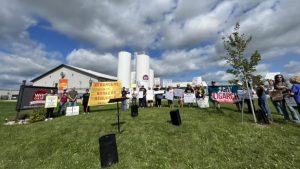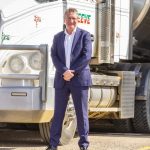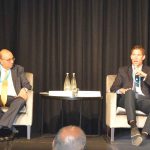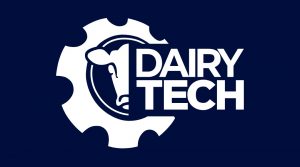
What does “sustainability” mean to you? It’s a word we’re continuing to see more often in just about every industry, but what does it actually mean, and what does it mean for Wisconsin agriculture?
Meriam Webster defines sustainability as “relating to or being a method of harvesting or using a resource so that the resource is not depleted or permanently damaged.” For more than 175 years, Wisconsin farm families have been caring for their animals and the land, and ensuring resources are available to farmers for generations to come.
Every farm operation is different, but many have a common goal: to become a more efficient and profitable contributor to our nation’s food system and communities. Due to the modernization of dairy farming practices and dairy farmers’ commitment to sustainability, producing a gallon of milk today compared to 2007 releases 19% less greenhouse gasses and uses 90% less land.
One way Wisconsin farmers are implementing sustainable solutions is by using digesters, which turn cow manure into energy. A digestor is a closed tank where there is no oxygen. Inside the digestor, bacteria break down organic materials like cow manure and food waste in a process called anaerobic digestion. This process creates biogas, which can be used for electricity, heat, compressed natural gas, and even vehicle fuel. There are currently more than 30 manure digesters in Wisconsin.
One Wisconsin operation that prides themselves on their sustainability efforts is Crave Brothers Farmstead Cheese in Waterloo. Not only do they produce delicious dairy products like mozzarella cheese and mascarpone, but they are also a carbon-negative company, which means they produce more power than they need to fuel their business. Their computer-controlled anaerobic digestion system generates enough electricity to power their farm, cheese factory, and 300 area homes!
Wisconsin farmers are also implementing sustainable measures in the field. Alsum Farms and Produce, a Wisconsin potato grower, is continually working to improve soil conservation and planting techniques. Planting and harvesting equipment with GPS technology helps them optimize planting efficiency and fuel consumption. They also use eco-friendly integrated pest management (IPM) techniques that reduce their use of pesticides, preserve water quality, restore native ecosystems, and protect wildlife.
Another sustainability measure that farmers around the state are using is adjusting tilling practices and adding buffer strips to field crops to decrease erosion and runoff.
Michael Fields Agricultural Institute has been working to advance sustainable farming practices since the 1980s. They research cover crops, hemp, wheatgrass, organic crops, and more. Their research benefits consumers and the environment and contributes to the future vitality of farms and rural communities. Improving farming practices to become more efficient and sustainable is key to feeding the growing population.
It takes hard work to produce the food and fuel for our communities. You can become more sustainably conscious at home by being mindful of water usage and reducing food waste.
Buying, preparing, and eating the right amounts of food is a great way to become more sustainable. When food is wasted, the natural resources that went into creating that food are also wasted. You can also help raise awareness by sharing the sustainable practices and techniques that farmers are using.
About Alice in Dairyland
Alice in Dairyland is a full-time communications professional with the Wisconsin Department of Agriculture, Trade and Consumer Protection (DATCP). The Alice program is supported by several partner organizations including Dairy Farmers of Wisconsin, Ginseng Board of Wisconsin, Goodman’s Jewelers, Kettle Moraine Mink Breeders Association, Dairy Innovation Hub, Wisconsin Beef Council, Wisconsin Corn Promotion Board, and Wisconsin Potato Industry Board. For more information about the Alice in Dairyland program, visit www.aliceindairyland.com and follow Alice online on Facebook, LinkedIn, and Instagram.
You can now read the most important #news on #eDairyNews #Whatsapp channels!!!
🇺🇸 eDairy News INGLÊS: https://whatsapp.com/channel/0029VaKsjzGDTkJyIN6hcP1K
























